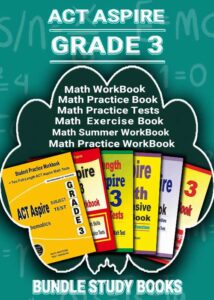
Study Time: 4minutes
Teaching Math to Children: Building Foundations for Lifelong Learning
Math is a universal language that helps us understand the world around us. From counting steps on a playground to measuring ingredients in a recipe, mathematical thinking is woven into everyday life. That’s why math education for children plays such a vital role in their overall development. By focusing on high-quality math education, parents and educators can foster strong problem-solving skills, improve logical reasoning, and spark a lasting interest in numbers. This article explores effective strategies to enhance math education for children, as well as tips for integrating math practice for children into daily routines.
Understanding the Importance of Math Education for Children
Early math education is about more than memorizing facts. It’s about teaching children how to think critically, reason abstractly, and approach problems with confidence. When math education for children begins at a young age, kids gain a solid foundation that prepares them for more complex concepts later on. Research shows that strong early math skills can even predict future academic success—children who have a good handle on basic numerical concepts are better equipped to tackle advanced topics in algebra, geometry, and beyond.
Moreover, math practice for children that is both frequent and enjoyable helps establish positive attitudes toward mathematics. If a child’s first experiences with math are engaging, supportive, and meaningful, they’re more likely to see themselves as “math people” and continue to pursue the subject throughout their schooling.
Tailoring Math Education to Each Child’s Needs
One of the key aspects of high-quality math education is recognizing that each child learns at their own pace. Some students may quickly grasp counting and addition, while others need more time and support. For truly effective math education for children, it’s essential to differentiate instruction. This means providing a variety of materials, activities, and teaching approaches to ensure all learners can thrive.
For example, a child who struggles with number recognition might benefit from hands-on activities, like sorting objects into groups or playing counting games with real-life items. On the other hand, a more advanced learner may excel when given puzzles that challenge them to identify patterns or solve problems that go beyond the basics. By allowing each child to move forward at their own pace, math education becomes more personalized and more likely to succeed.
Incorporating Play and Real-World Examples
Children are naturally curious and eager to explore. Leveraging this curiosity can make math practice for children both fun and effective. Instead of relying solely on worksheets and drills, consider incorporating math concepts into everyday play and conversation.
- Board Games and Puzzles: Classic board games that involve counting spaces, collecting pieces, or managing money (like Monopoly Junior) teach mathematical principles without feeling like formal instruction. Jigsaw puzzles and pattern blocks can reinforce spatial reasoning and shape recognition.
- Nature Walks and Outdoor Fun: A walk in the park can become an opportunity to count trees, compare the sizes of leaves, or discuss symmetry in nature. Integrating math education into these casual moments shows children that math is all around them.
- Cooking and Baking: Cooking with children offers a tasty way to practice measurement, fractions, and multiplication. Doubling a recipe, halving ingredients, or counting out portions encourages math education for children in a hands-on, meaningful context.
By turning everyday activities into math adventures, math practice for children becomes less about rote memorization and more about understanding the “why” behind the numbers.
Using Technology and Digital Resources
In today’s digital world, children are often comfortable using tablets, computers, and other devices at a young age. There’s a wide range of educational apps, online games, and interactive lessons designed specifically to support math education for children. These tools often feature adaptive learning technology that adjusts the difficulty level based on the child’s performance, ensuring a personalized learning experience.
When selecting digital resources, look for those aligned with curriculum standards and that emphasize conceptual understanding rather than just drilling facts. For instance, a math app might present a problem visually, encourage the child to experiment with different solutions, and provide immediate feedback. By blending technology with traditional teaching methods, parents and educators can enhance math practice for children and keep students engaged.
Encouraging a Growth Mindset in Math Education
A growth mindset—the belief that abilities can be developed through dedication and hard work—is crucial in math education. Children who see mistakes as learning opportunities are more likely to persist when facing challenging math problems. To cultivate a growth mindset, praise children for their effort and persistence rather than just their innate abilities. Encourage them to try different approaches, ask questions, and learn from errors.
For example, if a child struggles with addition problems, highlight the progress they’ve made rather than focusing on what they still find difficult. Remind them that even professional mathematicians encounter problems they can’t solve right away. With consistent encouragement, math education for children can transform from a source of anxiety into an exciting journey of discovery.
Supporting Math Education at Home
Parents are a child’s first and most influential teachers. Incorporating math practice for children into home life doesn’t require expensive materials or special training. Simple changes can make a significant difference:
- Daily Counting: Count objects together at home—books on a shelf, steps to the car, or fruits in a bowl. Consistent exposure to numbers fosters numerical familiarity.
- Number Talks: Ask open-ended questions about numbers. For example, “How many ways can we make 10?” or “What happens if we take away three from nine?” Discussions like these strengthen mental math skills and problem-solving abilities.
- Reading Math-Related Books: Many children’s books incorporate counting, shapes, and simple arithmetic. Enjoying stories that weave math into the narrative can make the subject feel more accessible and engaging.
- Setting Goals and Celebrating Achievements: When a child masters a new skill, celebrate their success. Recognizing effort and progress builds confidence and encourages them to keep exploring math concepts.
Building a Bridge Between Home and School
Collaboration between parents, caregivers, and educators is crucial for the success of math education for children. Teachers can share methods and materials that parents can use at home, while parents can provide valuable feedback about what strategies are working well for their child. Regular communication ensures that everyone is on the same page, reinforcing math concepts consistently and effectively.
When schools and families work together, children receive a unified message about the importance of math education. This consistent support encourages kids to view math as an exciting subject that deserves their attention and curiosity.
Fostering Lifelong Confidence in Math
Strong math education for children is about more than passing tests. It’s about giving them the tools they need to solve real-world problems, think critically, and approach new challenges with confidence. By weaving math practice for children into everyday experiences, leveraging technology, promoting a growth mindset, and building bridges between home and school, we set them on a path toward a positive relationship with mathematics.
As children grow into adults, they will rely on the foundational skills and attitudes formed in their early years. With patient guidance, encouraging environments, and meaningful math education, we can ensure that tomorrow’s adults feel comfortable, capable, and confident in their ability to understand and use math in all aspects of their lives.



